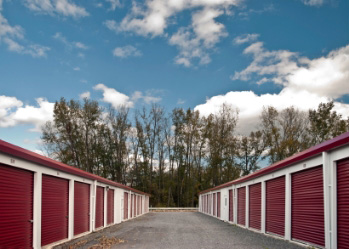Storage Insurance: Do you need to protect your storage unit?
Mark Henricks
Self-storage is one of the fastest-growing industries around, expanding from 6,600 facilities in 1984 to over 48,500 in 2014, according to the Self Storage Association. And as the number of mini-warehouses has grown, so has the chance something bad could happen to all the sofas, appliances and other items inside.
Many people renting storage units wrongly think the storage facility’s property insurance coverage will protect their stored items, said Scott Willson, director of insurance programs for Phoenix-based U-Haul International, one of the largest self-storage operators.
 However, a storage facility’s property insurance provides protection for the building that houses the storage units, not the contents of individual mini-warehouses. “It’s only going to replace the building in case of fire or something,” Willson says. “It doesn’t cover their goods.”
However, a storage facility’s property insurance provides protection for the building that houses the storage units, not the contents of individual mini-warehouses. “It’s only going to replace the building in case of fire or something,” Willson says. “It doesn’t cover their goods.”
Home insurance may offer storage tenants some protection. The most common standard home insurance policy covers personal property “anywhere in the world,” said Donald Griffin, vice president of personal lines at the Property Casualty Insurers Association of America, a trade association.
Off-premises home insurance coverage has a limit of $1,000 or 10 percent of the policy’s personal property limit, whichever is greater. That means if the personal property limit is $100,000, up to $10,000 worth of property in a storage unit could be covered.
Policy terms and limits vary, so your homeowner’s insurance may not cover the contents of your storage unit.
How to get storage insurance
Storage insurance protects against loss of the contents of self-storage units. That means if the facility burns down and the items a tenant stored there are destroyed, the insurance policy would pay to compensate for what was lost.
Storage insurance premiums start as low as $7 per month for $1,000 worth of coverage. Some policies can cover up to $75,000 for a couple of hundred dollars a month. Fewer than half of storage tenants get storage insurance, says Doug Bell, president of Repwest Insurance, which provides U-Haul’s storage insurance. This is partly because not everybody needs it, such as people that have a home insurance policy that covers off-premises property.
Many storage policies reimburse only for an item’s cash value at the time of loss, which may be less than it costs to replace. Policies typically cover lightning, vandalism, wind, tornado, hurricane, fire, smoke, hail, explosion, plumbing leaks and burglary,
However, there are coverage exceptions:
1. Floods. Riders may be available from some companies to cover some risks that aren’t normally covered, including limited coverage for flood damage.
2. Missing items. The fine print of a storage policy says coverage only applies to burglaries when there is evidence of forced entry and a police report is filed. If an item goes missing from your storage unit, it’s considered a “mysterious disappearance” and isn’t covered.
3. Damage from insects, rodents and other vermin. These exclusions are similar to homeowner’s and renter’s policies, except homeowner’s and renter’s insurance typically don’t cover earthquake damage, says Loretta Worters, spokeswoman for the nonprofit Insurance Information Institute.
4. Expensive items like jewelry and art. Storage policies may not cover everything in your unit. Exclusions usually include jewelry, art, furs, collectibles as well as cash, deeds, securities and other documents. Unlike home insurance, that may let policyholders purchase riders to cover normally excluded items, buyers of storage insurance policies usually can’t get riders to protect such items.
5. Motor vehicles. Doug Bell, president of Repwest Insurance, which provides U-Haul’s storage insurance, recommends tenants have conventional auto insurance for stored vehicles. However, some storage insurance carriers, such as Phoenix-based MiniCo, do cover vehicles.
Most tenants buy policies through the facility operator when renting the unit. Worters says many operators won’t rent out a storage unit unless the tenant gets storage insurance first, either from the facility or a third party. Tenants can also prove their goods are insured throughhomeowner’s or renter’s insurance.
Also, facility operators are not insurance agents, Willson notes. He recommends tenants talk with their insurance agent before purchasing a policy.
Third-party policies are available online and it pays to shop around, especially for special protection such as vehicle coverage. Other than that, options for saving money generally are limited to reducing coverage amounts or changing special coverage, such as for vehicles.
Bell cautions tenants not to try to save money by putting more goods into a unit than their policy limit will cover. If a tenant has more than $15,000 in property, the maximum U-Haul will insure, he recommends renting two smaller units to stay under the cap.
Worters offers another storage tip: Keep jewelry in a bank safe deposit box rather than a storage unit. It’s safer, and homeowner’s policies may offer discounts on valuables kept in safe deposit boxes, she says.
Changes to storage insurance
Storage insurance is evolving with the times. U-Haul, for example, is adding vermin coverage. They’ve also recently begun letting policyholders file claims with smartphones. Claim filers using phones will see a website optimized for small phone screens. They also can upload photos taken with their phones’ built-in cameras.
Worters also recommends that tenants make a video or photo inventory. “If your property is stolen or damaged, an inventory can help speed the claims process and substantiate your loss,” Worters says. “It will also help you determine how much insurance to buy to adequately protect your possessions.”
See how much you could save today on your home insurance. Get your free home insurance quotes today!
